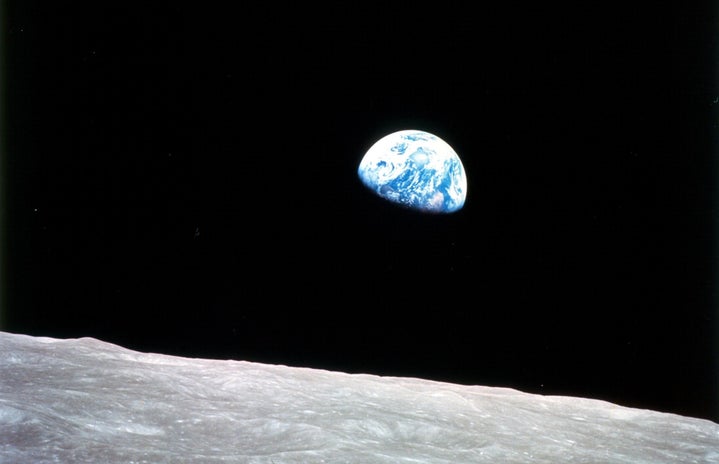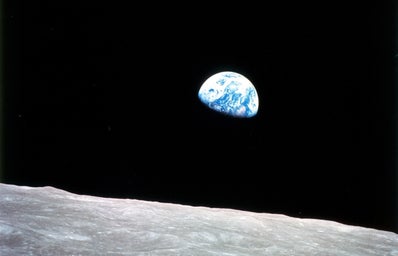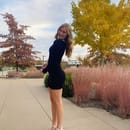When I was a freshman in college, I attended Miami University, about 45 minutes outside of Cincinnati. Transferring is a whole other story, but for now I’d like to divulge the tale of Dr. Stephen Alexander.
I had the great pleasure of meeting Dr. Alexander in the fall semester of 2022 when I enrolled in his Astronomy & Space Physics course. Despite being an English major/Biology minor, astronomy has always been one of those subjects that absolutely fascinates me. I grew up totally enraptured by science fiction novels and movies alike, prompting my parents to gift me a small telescope for Christmas one year, and I had always regretted not being able to finish my high school astronomy elective (thank you, Covid). Anyways, as soon as I saw that space physics was a required course for my major (once upon a time, my major was Earth Science Adolescent Education), I knew I wanted to take it as soon as possible.
But this story isn’t even really about the course at all. Rather, this story is about the very last day of classes that semester in which a measly 50 minutes of my life became a core memory. I walked into the auditorium, and though class hadn’t started yet, it was strangely quiet.
I took my usual seat in the center of the third row and waited for Dr. Alexander to begin his last lecture, likely another day of final exam review. But instead of putting more practice questions up on the board like he had the previous class, Dr. Alexander hit PLAY on a video. A melancholy orchestral composition began to seep through the speakers hanging all around the auditorium, and the screen slowly flipped through what appeared to be random photos: the Pyramids, a crying baby, people walking on a bustling city sidewalk, horses running through a field of wildflowers.
Then Dr. Alexander spoke. Time has stolen the exact words from my memory, but something about the way he spoke, with the wisdom of old age and the passion of a lover, really captivated me. He spoke on how his fascination for outer space first came into fruition and how the great mysteries of our universe still keep him up at night, not with fear but with anticipation for the next cosmological secret to reveal itself. And yet, he continued, the greatest mystery of our universe isn’t dark matter, dark energy or aliens. The greatest universal mystery of all is the human condition to love. Suddenly, this brilliant scientist and all-knowledgeable professor I had come to know over the course of the semester was revealed to be just a man who believed in true love, who believed in the inconceivable binding of souls.
And he didn’t stop there. He spoke on the beauty of emotions and feeling things so, so deeply. Feeling music, feeling a song “pull at your heartstrings,” he said. Something about music makes people stop, he said, makes people see one another and connect in a way that transcends all sense. He gestured with waving arms, caressing the air around him to the slow cascade of the orchestra surrounding us. The pictures continued to flash by: sidewalk chalk drawings, waterfalls, poverty, airplanes, flapper girls and majestic blue whales.
He goes on, and finally the ah-ha moment kicks in. This collection of photos is included on two Golden Records, sent out on NASA’s Voyager launches in the late seventies with the hopes of them leaving our solar system, a lasting memorial to humankind on Earth should the records ever be intercepted by extraterrestrial life, even after we are long gone. Included on the records are instructions on how to play the record and how to find Earth in the cosmos. And, of course, the record is full of music, a variety of compositions originating from all sorts of countries, including the piece we have been listening to this whole time, Ludwig van Beethoven’s String Quartet No. 13 in B flat, “Cavatina.” My heart panged at this, at the thought that NASA’s top scientists would find the beauty of music to be of utmost importance to send into the cosmos as a representative of humanity. Because we will all be gone one day, and these photos and “Cavatina” and the sounds of Earth will be all that’s left of us, floating alone in space.
I suddenly felt very small. But Dr. Alexander continued, quieter now as the song and our class came to their close. This feeling is the very reason he does what he does. There is so much to discover, so much to explore, and the unknown excites him. He will die someday, hopefully far sooner than his students, he says, and the biggest of questions will still be unanswered. He will not live to see a solution to dark matter, not live to understand why people fall in love. But he can only hope that we, as humans, never lose our curious nature, our desire to pursue the things that elude us.
I rethought my whole life that day. “Cavatina” brings tears to my eyes, even as I listen to it while writing this. And though I’ll never be an astrophysicist or work for NASA or walk on the moon, I’ll forever push the boundaries of what I believe I am capable of, and head into the unknown without a single glance back.


